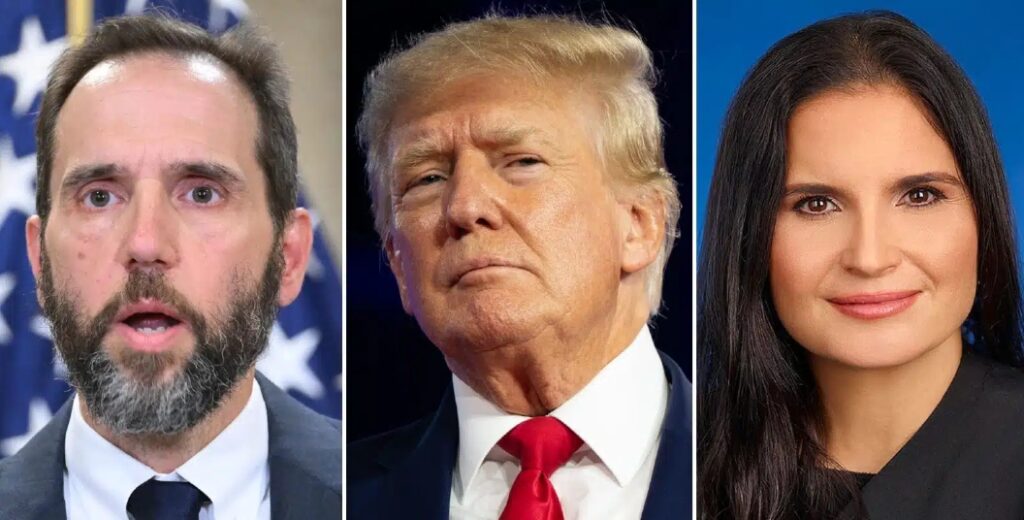The federal judge presiding over special counsel Jack Smith’s classified documents case against former President Donald Trump dismissed it on Monday, following a U.S. Supreme Court decision on presidential “immunity.” Charges filed last year by special counsel Jack Smith alleged that Trump mishandled classified documents, retained documents he was not entitled to have, and obstructed justice. However, U.S. District Judge Aileen Cannon’s ruling did not rest on the immunity claim but on Team Trump’s arguments that Smith was not constitutionally appointed.
Charges filed last year by Smith alleged that Trump mishandled classified documents, retained documents he was not entitled to have, and obstructed justice. In a 93-page ruling, Cannon approved Trump’s request to dismiss the indictment because Smith was appointed and funded illegally.
“Former President Trump’s Motion to Dismiss Indictment Based on the Unlawful Appointment and Funding of Special Counsel Jack Smith is GRANTED in accordance with this Order,” U.S. District Judge Aileen Cannon wrote in the Monday ruling. “The Superseding Indictment is DISMISSED because Special Counsel Smith’s appointment violates the Appointments Clause of the United States Constitution.”
Trump, following the ruling, told Fox News’ Bret Baier – the anchor and executive editor of ‘Special Report with Bret Baier’ – that he was “thrilled that a judge had the courage and wisdom to do this. This has big, big implications, not just for this case but for other cases.
“The special counsel worked with everyone to try to take me down,” Trump added from Milwaukee, the site of this week’s Republican National Convention. “This is a big, big deal. It only makes this convention more positive. This will be an amazing week.”
The appointments clause notes: “Ambassadors, other public Ministers and Consuls, Judges of the Supreme Court, and all other Officers of the United States be appointed by the President subject to the advice and consent of the Senate, although Congress may vest the appointment of inferior officers in the President alone, in the Courts of Law, or in the Heads of Departments.”
However, Smith was never confirmed by the Senate.
“Upon careful study of the foundational challenges raised in the Motion, the Court is convinced that Special Counsel’s Smith’s prosecution of this action breaches two structural cornerstones of our constitutional scheme – the role of Congress in the appointment of constitutional officers, and the role of Congress in authorizing expenditures by law,” Cannon wrote.
Last week, Cannon approved Trump’s request to halt the Biden Department of Justice’s prosecution of him in Florida for mishandling classified documents while she considered the impact of the Supreme Court ruling.
Veteran reporter Julie Kelly reported that Trump’s legal team filed the motion, which called for a pause in proceedings while the impact of the immunity decision is weighed. “President Donald J. Trump respectfully submits this motion for (I) leave to file supplemental briefing regarding the implications of Trump v. United States for the pending Presidential-immunity motion, ECF No. 324; and (2) a partial stay of further proceedings-with the exception of the pending gag-order motion, ECF No. 592-until President Trump’s motions based on Presidential immunity and the Appointments and Appropriations Clauses are resolved,” the motion said.
“A partial stay that pauses CIPA and other litigation is warranted based on the reasoning in Trump, and such a stay would be consistent with DOJ policies and practices that the Special Counsel’s Office claims to be bound by but is largely ignoring,” the motion continued. “Resolution of these threshold questions is necessary to minimize the adverse consequences to the institution of the Presidency arising from this unconstitutional investigation and prosecution. A partial stay is also appropriate to prevent further exploitation of judicial institutions and resources by Executive Branch personnel in connection with the shameful ongoing lawfare campaign.”
Bloomberg reported that the recent 6-3 Supreme Court decision on July 1st, which stated that Trump is entitled to some degree of protection against charges for his actions as president, has widespread implications. The ruling originated from a separate Washington case concerning his attempts to overturn the 2020 election results. Newsmax added that it is expected to impact three ongoing prosecutions against him, illustrating the decision’s significant reach and potential influence on related legal actions.



